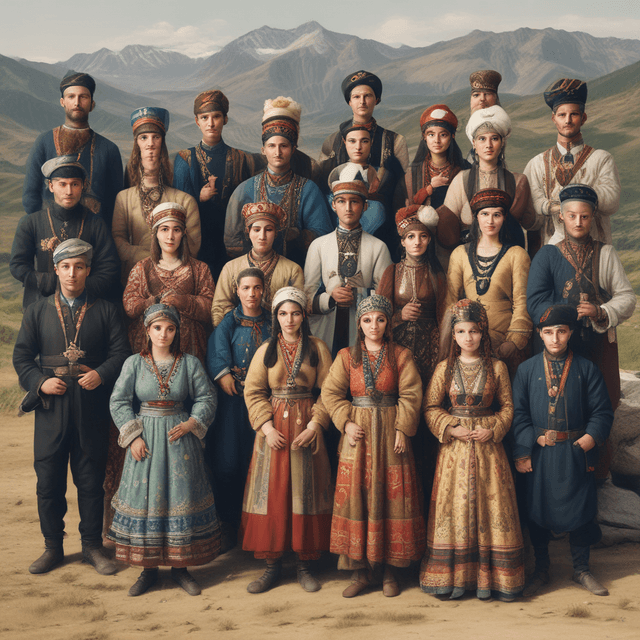
| History | Inhabited the Caucasus region for millennia, shaped by interactions with various empires |
| Term Definition | The diverse ethnic groups and cultures native to the Caucasus region of Eurasia |
| Included Peoples | Georgians • Armenians • Azerbaijanis • Chechens • Other Caucasus peoples |
| Region of Origin | The Caucasus mountains and surrounding areas |
| Shared Characteristics | Unique languages • Religions • Traditions |
| Distinction from Western Concept | The traditional meaning is more specific to the Caucasus region, rather than a broader 'Caucasian' race |
The term "Caucasian" has a very different meaning and connotation in this alternate timeline compared to the contemporary Western understanding. Rather than referring broadly to a racial category encompassing European, North African, and West Asian populations, "Caucasian" here specifically denotes the diverse ethnic groups indigenous to the Caucasus mountains and surrounding regions of Eurasia.
The Caucasus is a rugged, geographically isolated mountain range situated between the Black Sea and the Caspian Sea, spanning portions of Eastern Europe and Western Asia. This region has been the ancestral homeland of numerous distinct ethnic groups for thousands of years, including Georgians, Armenians, Azerbaijanis, Chechens, Circassians, Lezgins, and many others.
Though united by their shared mountain culture and regional identity, the Caucasian peoples exhibit immense linguistic, religious, and cultural diversity. The Caucasus is considered one of the most ethnically and linguistically diverse regions in the world, with dozens of unique languages and belief systems coexisting in close proximity.
The Caucasian peoples have a long and complex history, having interacted with and been influenced by various imperial powers over the centuries. The region has been contested ground between the Persian, Ottoman, Russian, and Soviet empires, as well as smaller regional kingdoms and khanates.
Despite periods of foreign domination, the Caucasian peoples have fiercely defended their autonomy and distinct identities. Uprisings, rebellions, and wars of independence have been common throughout the region's history, as Caucasian ethnic groups have sought to preserve their languages, customs, and political self-determination.
The Caucasian cultures are characterized by a shared mountain pastoral lifestyle, intricate artistic traditions, and unique linguistic and religious features. Many Caucasian peoples practice forms of Eastern Orthodox Christianity or Shia Islam, while also maintaining ancient pagan belief systems and rituals.
Caucasian identity and nationalism have grown increasingly prominent in recent decades, as the region has seen a renaissance of cultural pride and political movements toward greater autonomy or independence from larger state structures. This has led to heightened tensions and conflicts between Caucasian ethnic groups as well as with the powers that seek to control the strategically important Caucasus.
It is important to note that the traditional, regionally-specific meaning of "Caucasian" as used here is quite distinct from the broad racial category of the same name that is common in Western racial classification systems.
In the Western conception, "Caucasian" encompasses a wide range of populations across Europe, North Africa, and West Asia, whereas the traditional Caucasian identity is much more narrowly tied to the specific ethnic groups of the Caucasus mountains and surrounding areas. This alternate understanding of "Caucasian" has very different historical, cultural, and political implications compared to the Western racial construct.